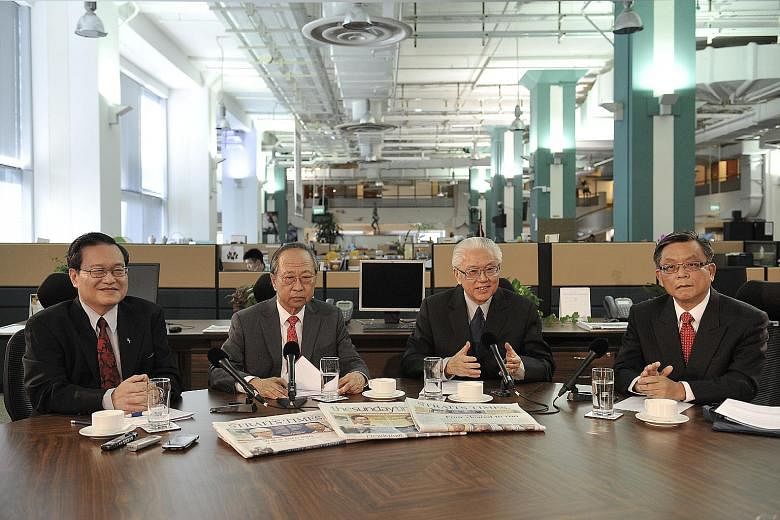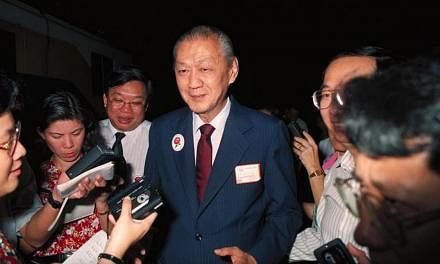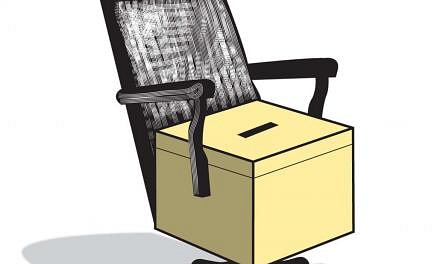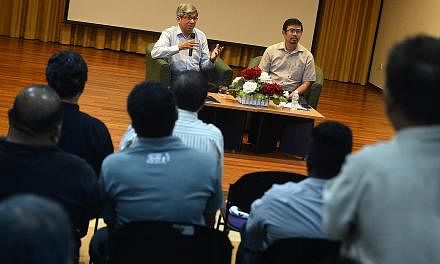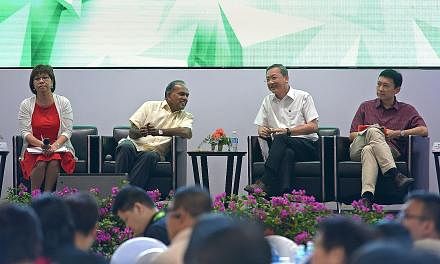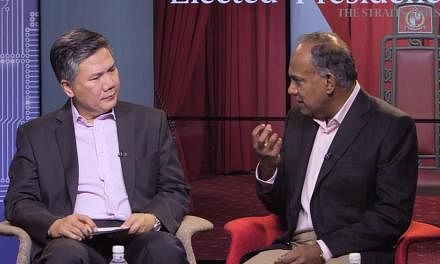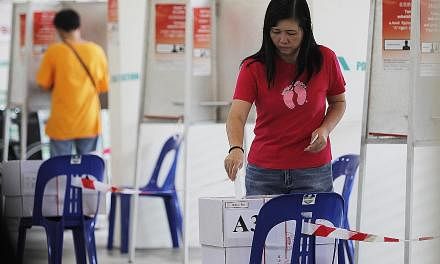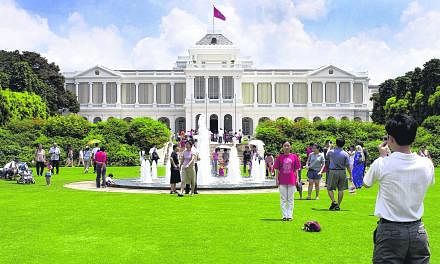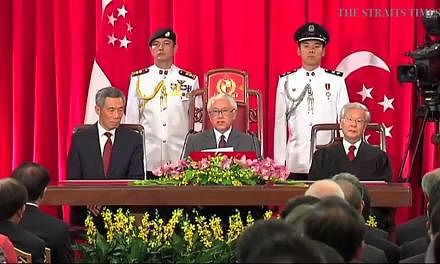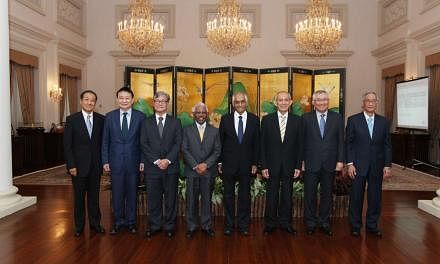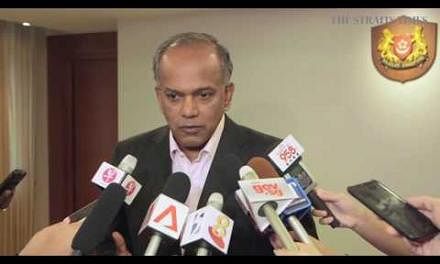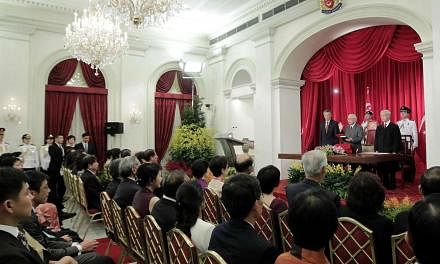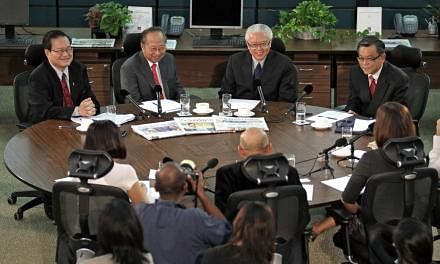SINGAPORE - The eligibility criteria for presidential candidates will be made more stringent, but they will not be tightened to the extent proposed by the Constitutional Commission.
One key suggestion that the Government accepted in its White Paper on Thursday (Sept 15) will require potential private sector candidates to have had experience running large, complex companies that have $500 million in shareholders' equity.
The current criterion - set 25 years ago - puts the amount at paid-up capital of $100 million, but the commission had said shareholders' equity is a better reflection of a company's current size and complexity.
The commission had also looked at whether there should be a requirement for these companies to be listed on the Singapore Exchange but decided it was not necessary for now, a point the Government agreed with.
The Government also agreed with the commission that only the person holding the most senior executive position in a company should qualify to run for president.
Current rules allow the chairman or chief executive of a qualifying company to stand, but the commission had noted that a non-executive chairman not actively running a company would not have the necessary expertise.
Also, a profitability requirement will be adopted to show that a potential candidate performed acceptably while helming a company.
Under this requirement, the firm should have recorded a net profit during the candidate's time heading it. It must also not go into liquidation or insolvency within three years of the candidate's departure.
But the Government rejected another significant recommendation, that potential candidates must have served six years - double the current requirement of three years - in a public or private sector position to qualify to stand for election.
While it recognised the importance of applicants spending adequate time in a qualifying office, the Government said the minimum duration was ultimately a question of balance.
"Given the concurrent changes to other aspects of the eligibility criteria, the Government prefers to adopt a cautious approach, and retain the qualifying tenure at three years at this time," it said.
Similarly, the Government preferred to "proceed cautiously" on a recommendation that the entire period of the candidate's qualifying tenure must be within 15 years before nomination day.
It said: "As long as an applicant's qualifying tenure falls wholly or partly within 20 years of the relevant presidential election, his experience may be considered suitably current."
The commission had also proposed that should a candidate have held two or more qualifying positions, the time spent in those offices can be added up to meet the required length of tenure, which the commission had suggested be set at six years.
But the time spent in private sector qualifying offices cannot be added with public sector ones as the commission felt that "the experience derived from one route is likely to be different in nature from that derived from the other".
The Government agreed with this proposal. But in the light of its position to retain the current requirement of three years, it said there should be a maximum of two separate periods during which a candidate has held qualifying offices. Each qualifying period of office should also not be less than one year.
On the proposal that the Accountant-General and Auditor-General be removed from the list of key public service appointments that automatically qualify, the Government said it will need to consider such a move more carefully.
The commission had said that both offices do not deal with the pressures of government decision-making, and "play an indispensable but ultimately ancillary (and comparatively narrow) role" in public service.
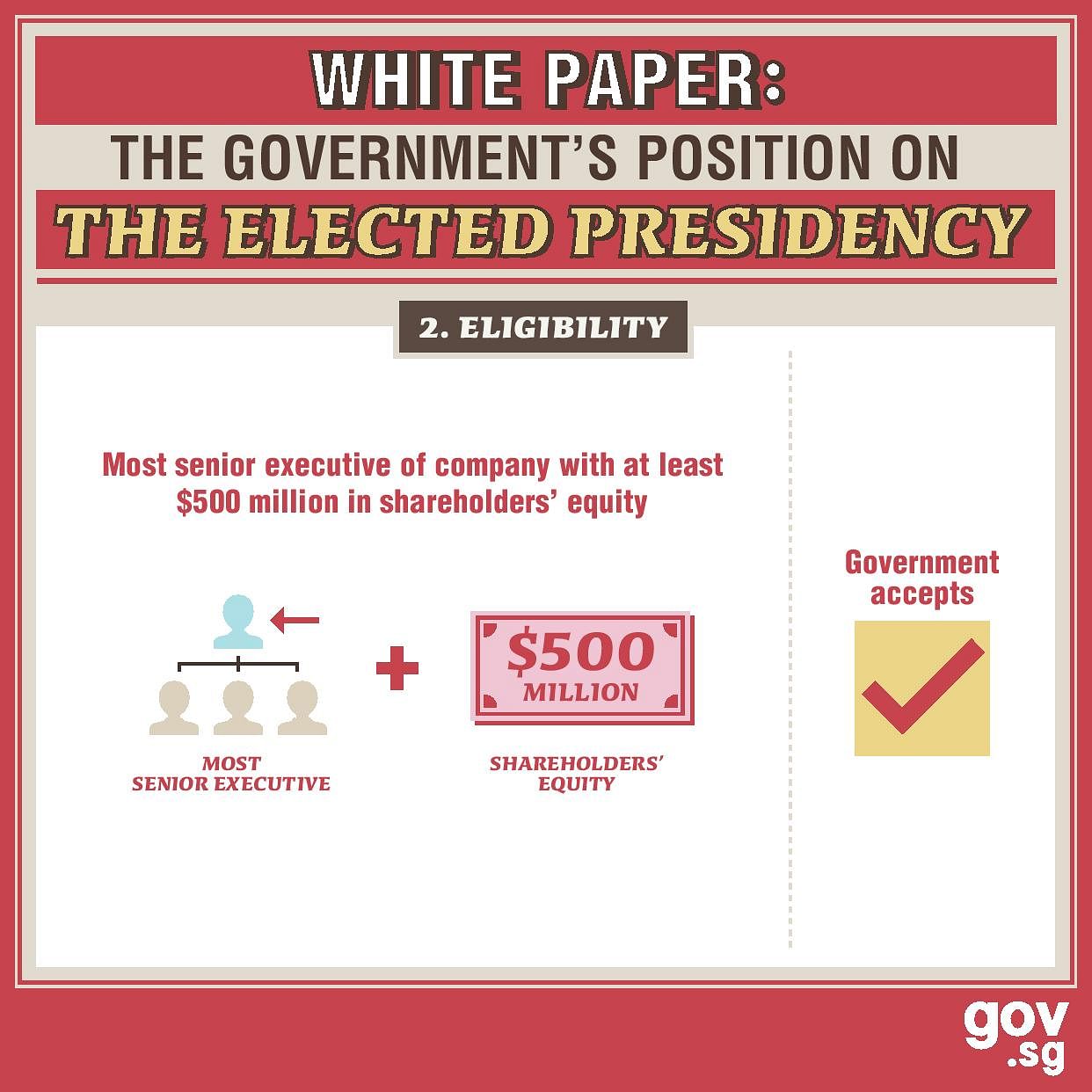
The Government responded that these were valid points, but added: "The Government will retain the existing position for now, and reconsider whether the two offices should be removed at a future point in time."
